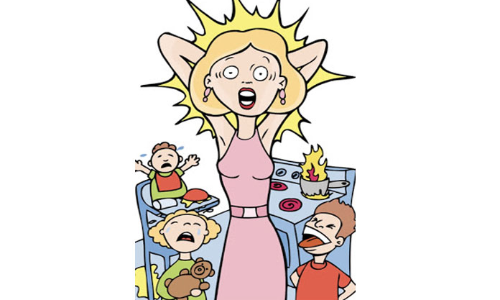What Is Your Type Of Parenting? Is Your Parenting Effecting On kids?

As a parent, for over decades as witnessed we have adopted various parenting styles all across the globe for nurturing a healthy relationship with their children
As a parent, for over decades as witnessed we have adopted various parenting styles all across the globe for nurturing a healthy relationship with their children.
In today's generation, every parent has to work on improving their parenting education as it is the key to help on know that they are raising their children in a helpful way.
It could be considered that how a mother and father elect to raise their children is a personal and private matter. However, practitioners and professionals are dedicated to assisting parents to develop a framework that helps guide their parenting style.
But what is the reason behind a parent getting educated about parenting?
The key is to improve parent's understanding of the cause and effect of a chosen parenting style and provide tips on tailoring this for their individual family environment.
What we know for sure is that the style of parenting matters to a child's development, as childhood experiences have a lasting impact on children all into adulthood. Some adults believe parenting is all about something that happens only after their child is born; as of this birth they are no mum and dad and parenting will happen innately, in a largely unplanned way of course. One who had experienced parenting will know this better that raising children is very rewarding but also involves times of frustration and uncertainty.
Many parents adopt the parenting style of their own parents or quite the reverse. if they expressly do not want to raise their family the way they were raised.

Here come's the parenting styles
Parenting styles are categorized based on two dimensions of parenting behavior:
one is DEMANDINGNESS refers to the extent parents control their children's behavior or demand their maturity.
the other is RESPONSIVENESS refers to the degree parents are accepting and sensitive to their children's emotional and developmental needs.
PARENTING STYLES OUTCOMES
1) Authoriative Parenting

High demandingness. High responsiveness.
Authoritative Parents have high expectations for achievement and maturity, but they are also warm and responsive. These parents set rules and enforce boundaries by having an open discussion and using reasoning. They are affectionate and supportive and encourage independence. This parenting style is also known as the Democratic Parenting Style.
Children of Authoritative parents are:
- They appear happy and content.
- They are more independent.
- They achieve higher academic success.
- Develop good self-esteem
- Interact with peers using competent social skills
- Have better mental health -less depression, anxiety, suicide attempts delinquency, alcohol, and drug use.
- .Exhibit less violent tendencies.
2) Authoritarian Parenting

High demandingness. Low responsiveness
Although authoritarian and authoritative parenting styles have similar names, they have several important differences in parenting beliefs. While both parental styles demand high standards, authoritarian parents demand blind obedience using reasons such as "because I said so" These parents use stern discipline and often employ punishment to control children's behavior. Authoritarian parents are unresponsive to their children to their children's needs and are generally not nurturning.
Children of Authoritarian parents:
- Tend to have an unhappy disposition
- Are less independent
- Appear insecure
- Possess lower self-esteem
- Exhibit more behavioral problems
- Perform worse academically
- Have poorer social skills
- Are more prone to mental issues
3) Permissive Parenting ( Indulgent)

Low demandingness. High Responsiveness
Permissive parents set very few rules and boundaries and they are reluctant to enforce rules. These parents are warm and indulgent but they do not like to sa or dissapoint their children.
Children of permissive Parenting
- Cannot follow rules
- Have worse self-control
- Possess egocentric tendencies
- Encounter more problems in a relationship and social interactions
4) Neglectful Parenting ( Uninvolved)

Low demandingness. Low responsiveness
Neglectful parents do not set firm boundaries to their children's needs and uninvolved in their lives. These uninvolved parents tend to have mental issues themselves such as maternal depression, physical abuse or child neglect when they were kids.
Children of Neglectful parents:
- Are more impulsive.
- Cannot self-regulate emotion
- Encounter more delinquency and addictions problems
- Have more mental issues -e.g suicidal behavior in adolescents.
From decades of studies, researchers found that authoritative parenting is consistently linked to the best outcomes in kids. Therefore, the authoritative parenting style is considering the best and most effective parenting style by psychologists and psychiatrists.

















